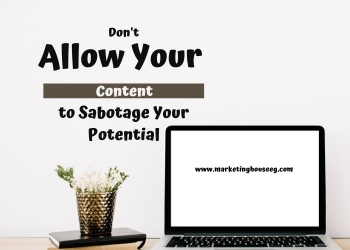
Don't Allow Your Content to Sabotage Your Potential
In life, most things have an expiration date, and your website is no exception. It's crucial not to let outdated and irrelevant content wreak havoc on your online marketing strategy. Keep your web pages fresh and relevant to your customers to ensure they take notice and keep coming back.
Take a moment to reflect on why you initially developed your website. Was it to attract new visitors, retain existing customers, or establish yourself as a leader in your industry? Recall the thoughts and emotions you experienced at the beginning of your online journey. Have your ideals, products, or services evolved over time?
If the answer is yes, it likely means you've achieved some level of success (congratulations!), but that should not make you forget why you embarked on this journey in the first place. In fact, it's an even better reason to ensure that your online presence continues to grow and achieve your goals. Fresh and relevant content is vital to ensure that your website ranks high in SEO, as it encourages Google's 'spider,' Googlebot, to access your site and utilize your content to update the web index.
Here are a few simple steps you can take to ensure that your website remains current:
Utilize a Content Management System (CMS): A CMS simplifies the technical aspects of uploading data to your website. It automatically updates pages through the backend, allows you to schedule content, and assigns tasks among users. Multiple individuals can use the system simultaneously, and it's relatively user-friendly.
Consider SEO: One of the primary goals of a website is to achieve a high ranking on search engines like Google. Regularly publishing relevant and high-quality content on your pages will help you avoid being pushed down the rankings (heaven forbid you end up on the third page!).
Start a blog: A blog is an excellent way to showcase a more personal side of your business to customers. You can discuss relevant industry topics and their impact or explore products similar to what you offer. The frequency of blog updates can vary depending on your content, ranging from daily to weekly. It's a great way to generate excitement about your work and pique people's curiosity about your brand.
Encourage regular testimonials: Let's be honest, no one will trust a website with testimonials that are months or even years old. To establish credibility in your industry, it's crucial to keep this section updated with both video and written feedback from your customers. Visitors may even consider it their first destination before making a purchase or seeking your expertise. Feel free to inject some fun into this section by including case studies, offering an in-depth view of your services from your perspective. By keeping this section fresh, you demonstrate to potential customers that you are a market leader and consistently sought after, establishing yourself as a credible supplier in their eyes.
Connect through social media: The beauty of social media lies in its ever-evolving nature. Multiple platforms are available to create buzz around your brand and drive traffic back to your website. You can manage social media marketing yourself or entrust it to experts, and it can be done anytime and anywhere. Regular updates on social media platforms will let people know that you are dedicated to what you do and help you stay top of mind.
Educate through news: Depending on your industry, it might be valuable to keep your customers informed through a news feed. You can share updates about upcoming industry events, new product launches, or press releases. Your news feed can serve as a source for engaging content that keeps your audience informed and interested.








